
Business Owner Has Questions For Person After They Leave Anonymous 1-Star Review
The web, mobile phones, social media platforms, and apps like Yelp have unleashed a reviewing revolution. You no longer have to share your opinion of a brand through word of mouth alone; now you can do it en masse and in an instant.
For one person, they were compelled to leave a 1-star review after witnessing a business vehicle driving recklessly in busy traffic. After posting anonymously, they forgot about it, until the company owner emailed them at work, that is.
More info: Reddit
Reviewing a business has never been easier, but this person’s impulsive review came back to haunt them
Image credits: Freepik / Freepik (not the actual photo)
After witnessing a branded company car driving recklessly, they went online and left the business an anonymous 1-star review
Image credits: Freepik / Freepik (not the actual photo)
They forgot about it and carried on with their life, but they were in for a shock a few months later
Image credits: master1305 / Freepik (not the actual photo)
The business owner emailed them at work, asking them point-blank why they had left such a bad review
Image credits: Koala_apples
Wondering whether they should respond, the person turned to the web to share their story and admitted they’d learned a lesson
OP begins their story by telling the community that, a few months ago, they were driving in heavy traffic after a long weekend in Australia. During their drive, they witnessed all manner of bad driving, but one motorist in particular stood out, nearly causing numerous accidents with their reckless driving.
According to OP, the vehicle was branded with the company’s name, phone number, and website. When OP got home, they Googled the business and left a 1-star review. They admitted it was petty, but moved on and forgot about it.
OP then tells the readers that, yesterday, they got an email at their work address from the business owner asking why they’d left the bad rating. They said they hadn’t responded yet because they were both annoyed and weirded out that the owner had figured out where they worked, along with their real name.
They go on to say that they’re now torn between giving the company a call to explain the situation or leaving the owner wondering. In an update to their original post, OP revealed that the owner had started following them on LinkedIn, they had since deleted their review, and they didn’t consider someone researching their name and workplace to be normal behavior.
Even though OP left the review using their personal Gmail account, it didn’t take the business owner very long to find their place of work, work email address, and LinkedIn profile.
OP is understandably unnerved by how things have played out. But just how easy is it for someone to dig into your online identity? And how do you protect yourself from cyberstalking? We went looking for answers.
Image credits: Alina Kurson / Pexels (not the actual photo)
According to the Kaspersky website, cyberstalking can be summed up as “the use of the internet, or other electronic means, to harass and intimidate a selected victim.” Typical characteristics of cyberstalking may include traditional ‘stalking’ behaviors, such as tracking the victim’s location and surveilling their digital and real-world activities.
Cyberstalking goes much further than simply following somebody on a social network. The intent to intimidate is its defining characteristic. From trolling and sending threatening messages to hacking email accounts and perpetrating identity theft, cyberstalkers can leave their victims feeling harassed, abused, and vulnerable.
According to Kaspersky, cyberstalkers typically begin by Googling their intended victim’s name. From there, they can find the victim’s home address, phone number, and other personal details with relative ease.
Cyberstalking is illegal in the US, but there’s not much in the way of federal protections. The few that do exist are the Combat Online Predators Act, Title 18, and the Violence Against Women Act. With such meager protection, what can you do to avoid becoming a victim?
The Norton website suggests conducting a scan of your online information (including that of your close friends and family), asking websites to remove any info you don’t want online, using strong passwords in tandem with a password manager, refraining from sharing your location unless absolutely necessary, and setting your social media accounts to private.
Are you, or have you ever been, a victim of cyberstalking? In her article for Psychology Today, Ahona Guha (D.Psych) writes that studies have found that people victimized this way experience serious mental health impacts, including depression, anxiety, panic attacks, and even suicidal ideation.
Guha suggests 5 strategies that may help if you’re being cyberstalked or harassed.
These include firmly asking the perpetrator to stop, blocking them on all your social media channels and inboxes, using legal options such as a restraining order, and keeping evidence such as screenshots of abusive or unwelcome messages that you can use against your cyberstalker in court if need be.
Fortunately for OP, the business owner’s response to their poor review was tame, even though the LinkedIn follow felt a bit shady.
What would you do if you found yourself in OP’s shoes? Should they clear things up, or leave the business owner hanging? Let us know your opinion in the comments!
Readers in the comments shared their own experiences calling out bad company vehicle drivers and agreed that OP was justified in leaving the poor rating
Poll Question
Thanks! Check out the results:
Just give a reason why it's a 1 star review. Low reviews without reasons are worthless, how can you improve your business? Just guess what is happening? The boss might not know how his employees drive untill someone tells them. It's like complaining that the coffeemachine at work has been broken for 2 weeks, but no one took the responsability/step to actually put in a call to maintenance to fix it. It annoys me to no end when people complain about service when they haven't even told the serviceprovider they have an issue. If the serviceprovider reacts s****y, then you can complain.
I don't get OP's cavalier attitude here. A one-star online rating to a small business is devastating, particularly as small business live and die by their reviews. Plus, you're not affecting just one person at that biz with the 1-star. That would be like me calling the school principal if one of their students didn't do a good job at babysitting. You call the Highway Patrol for reckless driving on the road - in fact, it's easier to jot down a License plate vs. the web address of a business. There is no real equivalency here. Someone calling his job - seems like he works at a large corp - about his bad driving is not equal to someone giving his business (if he owned it) a 1-star review.
Load More Replies...Don't put "How am I driving" on your company vehicles if you don't want to know.
Such a child, could've easily called the business, asked to speak to the owner, told them their employee was driving dangerously, and that would've been the end of it.
I did that once when a truck tried to run me off my motorbike. I got told to f**k off. Literally.
Load More Replies...Just give a reason why it's a 1 star review. Low reviews without reasons are worthless, how can you improve your business? Just guess what is happening? The boss might not know how his employees drive untill someone tells them. It's like complaining that the coffeemachine at work has been broken for 2 weeks, but no one took the responsability/step to actually put in a call to maintenance to fix it. It annoys me to no end when people complain about service when they haven't even told the serviceprovider they have an issue. If the serviceprovider reacts s****y, then you can complain.
I don't get OP's cavalier attitude here. A one-star online rating to a small business is devastating, particularly as small business live and die by their reviews. Plus, you're not affecting just one person at that biz with the 1-star. That would be like me calling the school principal if one of their students didn't do a good job at babysitting. You call the Highway Patrol for reckless driving on the road - in fact, it's easier to jot down a License plate vs. the web address of a business. There is no real equivalency here. Someone calling his job - seems like he works at a large corp - about his bad driving is not equal to someone giving his business (if he owned it) a 1-star review.
Load More Replies...Don't put "How am I driving" on your company vehicles if you don't want to know.
Such a child, could've easily called the business, asked to speak to the owner, told them their employee was driving dangerously, and that would've been the end of it.
I did that once when a truck tried to run me off my motorbike. I got told to f**k off. Literally.
Load More Replies...
 Dark Mode
Dark Mode 

 No fees, cancel anytime
No fees, cancel anytime 







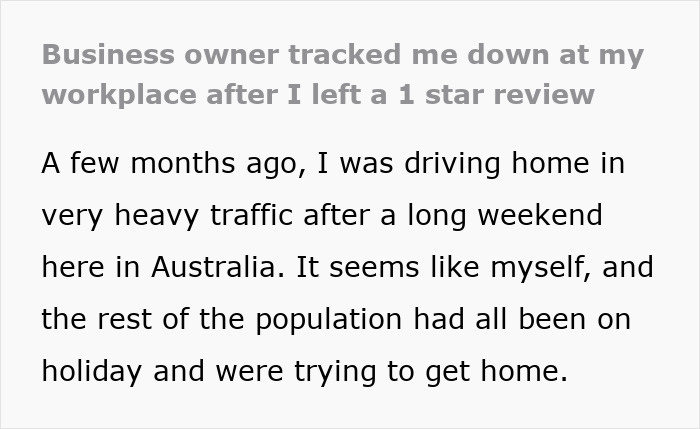
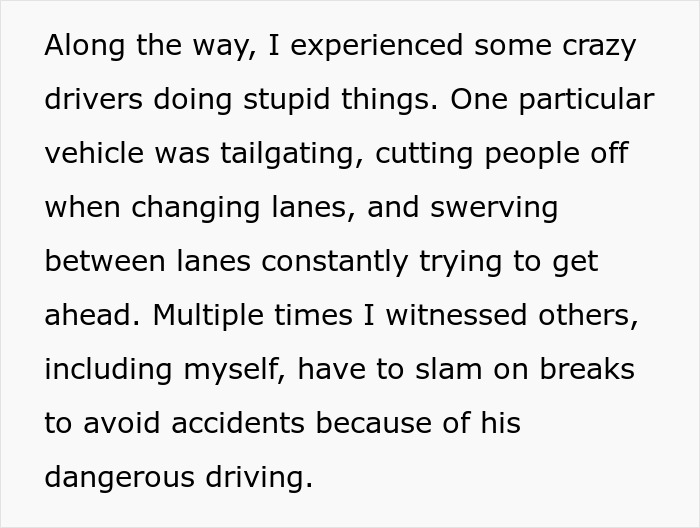
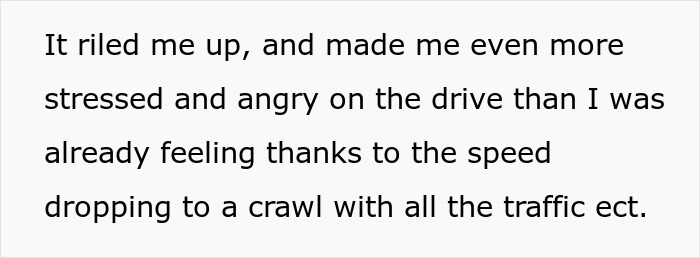

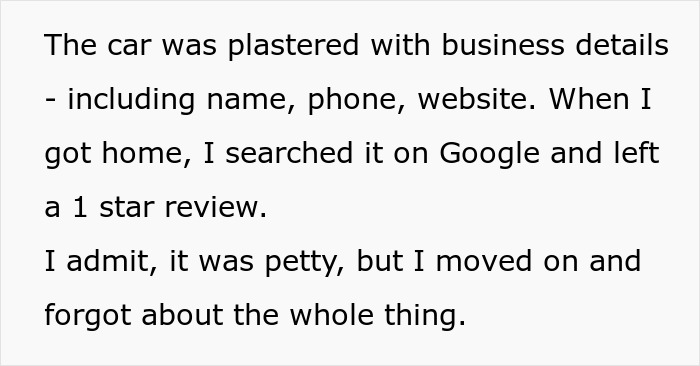
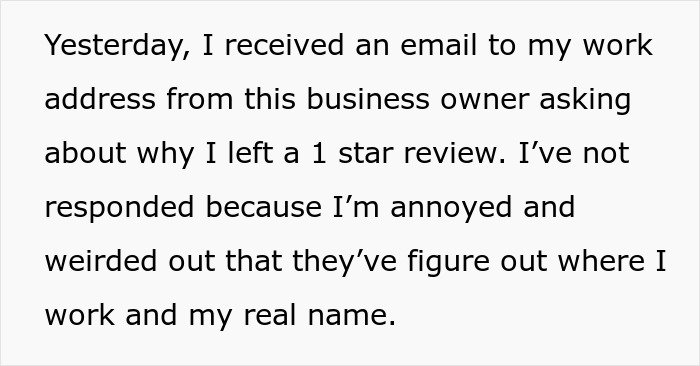
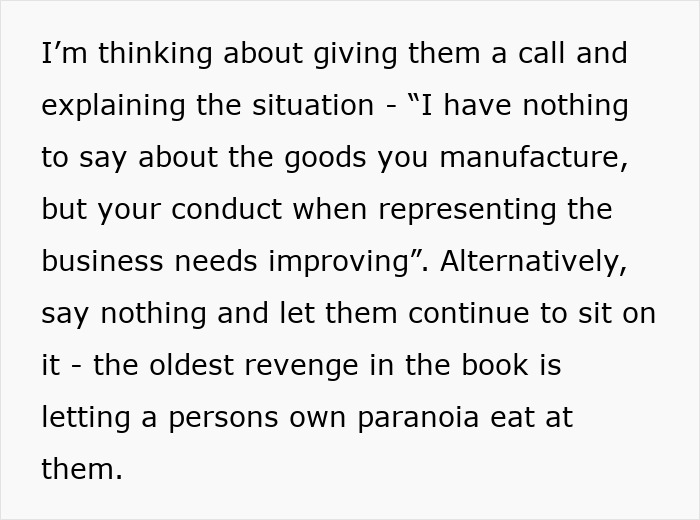

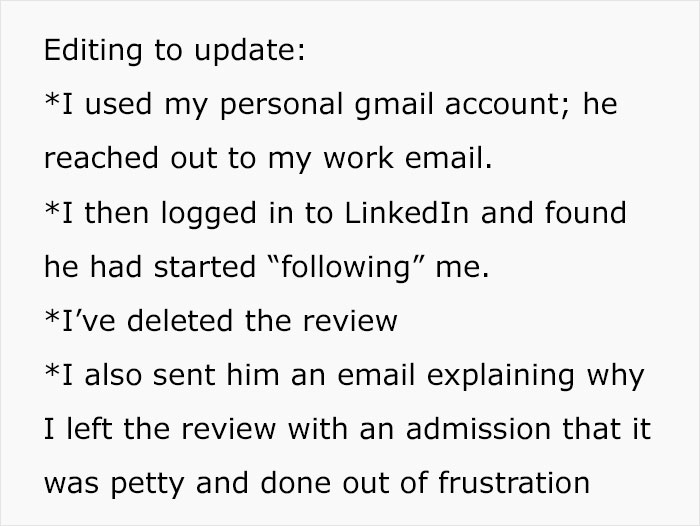
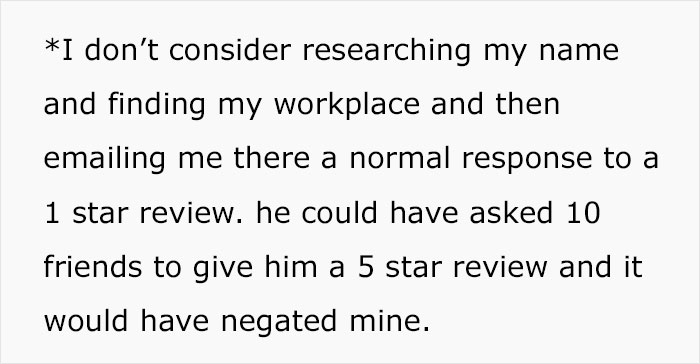
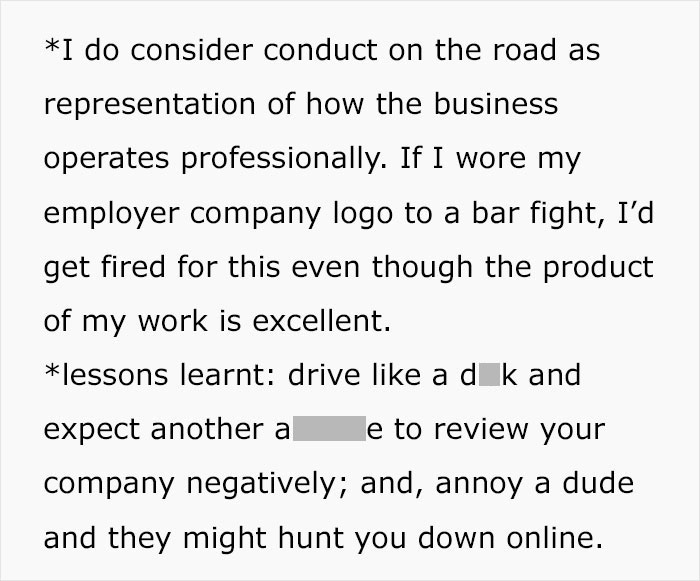

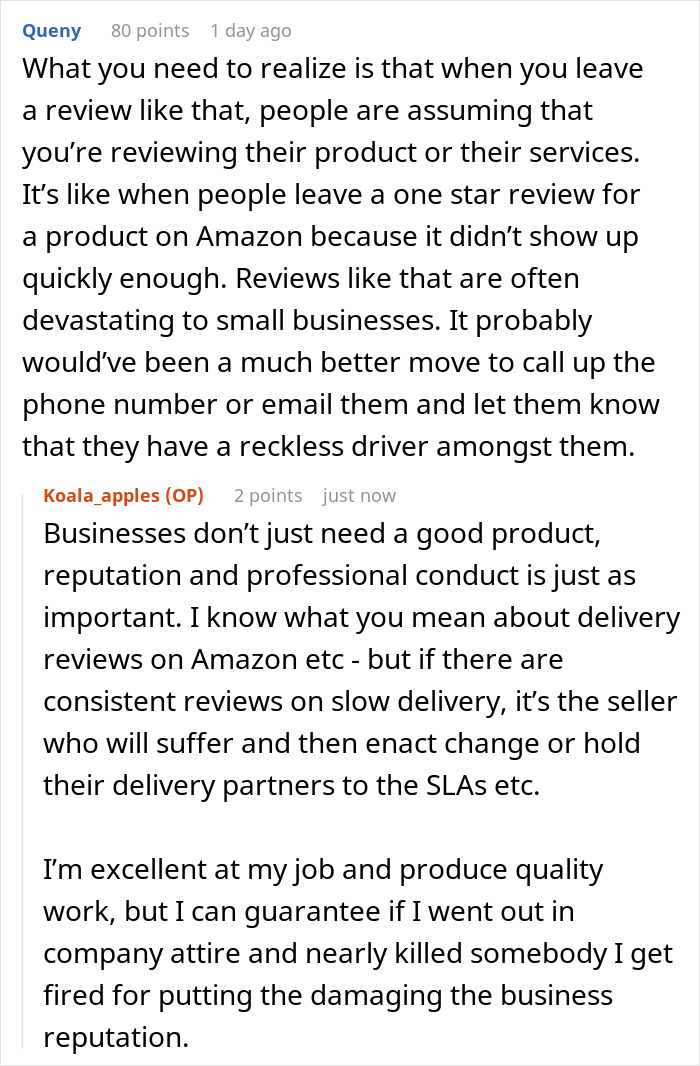
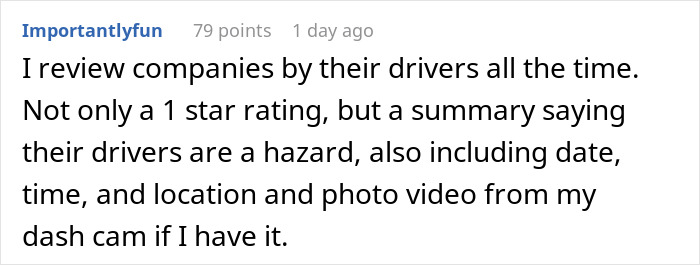
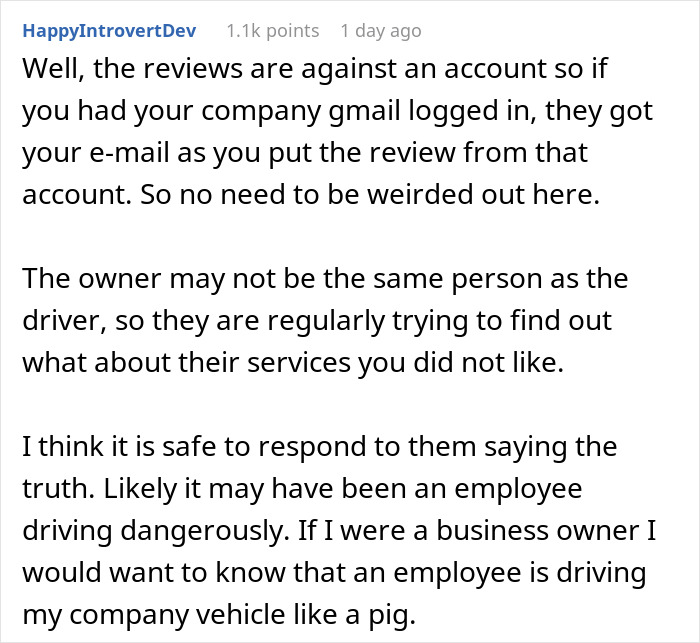














































27
33